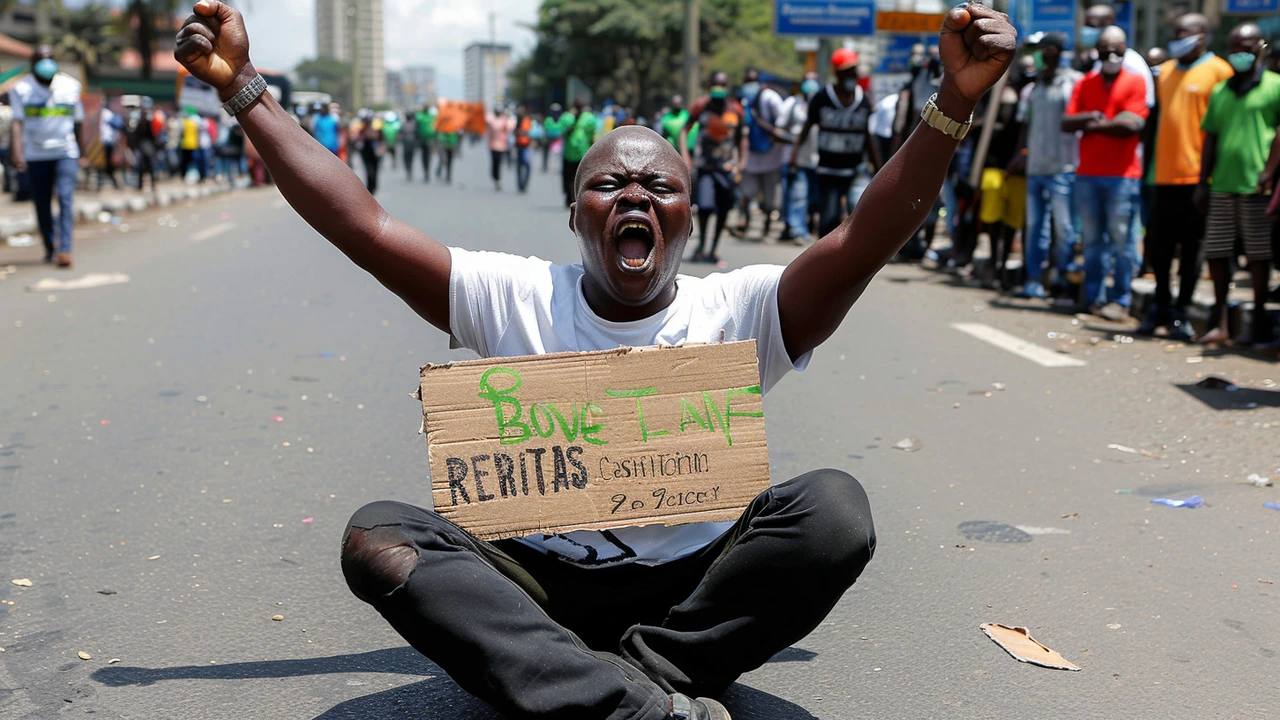Kenya's Finance Bill Faces Turbulence as MPs Remove Punitive Taxes Amid Protests

Finance Bill 2024: Clash of Interests and The Road to Revision
In a significant turn of events, Kenya's National Assembly's Finance Committee has decided to remove several punitive taxes from the much-discussed Finance Bill, 2024. This decision is a direct response to intense pressure from various stakeholders, coupled with protests that filled the streets of Nairobi. As the committee readies its report for presentation to the House, the atmosphere surrounding the debate is nothing short of electric.
The Finance Bill 2024 has been a contentious piece of legislation from the start, stirring strong feelings on both sides of the political aisle. The ruling Kenya Kwanza coalition and the opposition Azimio brigade have been called to separate meetings to solidify their stances. President William Ruto himself chaired a session with Kenya Kwanza members at State House, emphasizing the need for unity and coherence in their approach to the Bill. Concurrently, the Azimio coalition has been vocal in its opposition, urging its members to outright reject the proposed legislation.
One of the most significant outcomes of these discussions has been the Finance Committee's recommendation to eliminate the more onerous taxes that had been proposed. This seems to mark a potential shift in how the Bill might proceed, though the upcoming debates are expected to be intense and uncertain.
Protests and Public Sentiment: The 'Occupy Parliament' Movement
The political maneuvers inside the halls of power are mirrored by substantial public unrest outside. The streets of Nairobi witnessed a wave of protests under the banner of 'Occupy Parliament.' The demonstrations aimed to apply pressure on lawmakers to reject the Finance Bill. The protesters fear that the proposed taxes would exacerbate the economic hardships facing ordinary Kenyans, making basic commodities even more unaffordable.
Despite the police declaring the protests illegal, the demonstrators showed resilience. But the authorities responded with tear gas and arrests. Several organizers and rights activists found themselves behind bars. This heavy-handed approach has drawn sharp criticism from various quarters, particularly the Law Society of Kenya (LSK). LSK President Faith Odhiambo has condemned the police's interference in the lawful expression of public dissent and has threatened legal action against officers found to be violating the rights of protesters.
The Law Society's stance underscores a crucial aspect of the ongoing crisis: the right to protest is enshrined in the constitution, and any attempts to stifle it are being seen as acts of repression. Odhiambo's warning signals a readiness to defend this right in court, setting the stage for potential legal battles.

Legal and Social Ramifications: The Broader Impact
The Finance Bill is not just a legislative measure; it is also a touchstone for broader societal issues. Kenya is currently grappling with economic challenges, including high unemployment rates and the rising cost of living. Many see the Finance Bill as a test of the government's commitment to addressing these issues in a manner that does not disproportionately burden the ordinary citizen.
Critics of the Bill argue that the proposed taxes could have a chilling effect on small businesses and could exacerbate the already significant wealth gap. Proponents, on the other hand, insist that the taxes are necessary to boost revenue and fund essential public services. The Finance Committee's decision to recommend removing the most contentious clauses indicates that there is at least some recognition of the public's concerns.
This move might also be seen as a strategic retreat, giving the committee and the ruling coalition more room to navigate the complex political landscape. But whether this will be enough to quell public dissatisfaction remains to be seen. The coming weeks are likely to see intense consultations, debates, and perhaps more protests.
Stakeholder Perspectives: A Government at Crossroads
Various stakeholders have weighed in on the Bill and the subsequent protests. Business leaders, for instance, have voiced their concerns about the impact of the proposed taxes on the investment climate. They argue that additional taxes could deter both local and foreign investment, harming the country’s economic prospects in the long run. Civil society organizations and rights groups have similarly been vocal, emphasizing the need for a more transparent and inclusive approach to economic policymaking.
Within the political arena, the divisions are stark. Kenya Kwanza members generally support the Bill, albeit with some reservations. They argue that the taxes are a bitter but necessary pill to swallow in order to secure the country’s financial future. The Azimio coalition, on the other hand, uses the Bill as a rallying point to galvanize opposition against what they describe as an oppressive regime. This dichotomy is likely to play out in the House, with arguments that go beyond just the specifics of the Bill to encompass broader ideological battles.

A Nation Watches: The Path Forward
As the Finance Committee prepares to present its report, the nation watches with bated breath. The public's reaction to the report could be a significant factor in what happens next. If the recommendations are seen as adequate, it might pacify some of the discontent. However, if the report is perceived as falling short, the protests could intensify, leading to a potential escalation in civil unrest.
For President Ruto and his administration, navigating this complex issue is a balancing act. They must find a way to address the economic necessities that prompted the Bill in the first place, while also acknowledging and mitigating public fears and objections. It is a delicate dance that requires not just political acumen but also a keen sense of empathy and understanding of the lived realities of ordinary Kenyans.
In the final analysis, the Finance Bill 2024 and the protests it has sparked are a reflection of the broader struggles facing Kenya. They highlight the tensions between economic policy and social justice, between governmental authority and public dissent. How these issues are resolved will have lasting implications for the country's political and economic landscape. Will the government find a way to balance its books without tipping the scales against its citizens? Only time will tell.
The next steps will be closely watched not just within Kenya, but by international observers as well. The outcome will serve as a case study in governance, public engagement, and the intricate dance of democracy. For now, all eyes remain on Nairobi, as the nation awaits the next chapter in this unfolding saga.